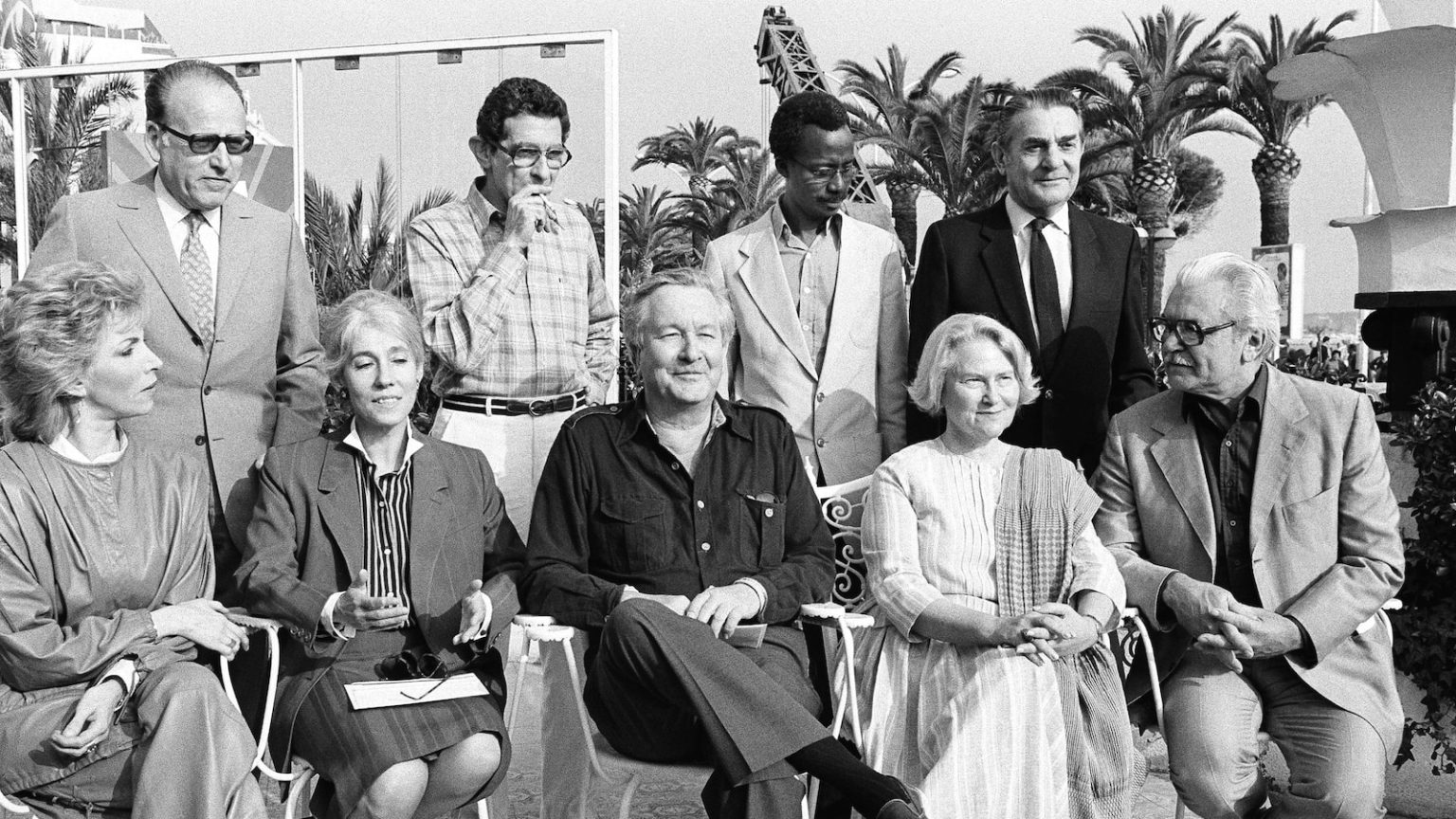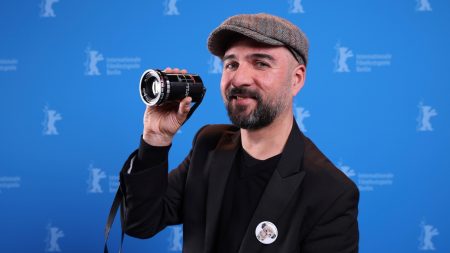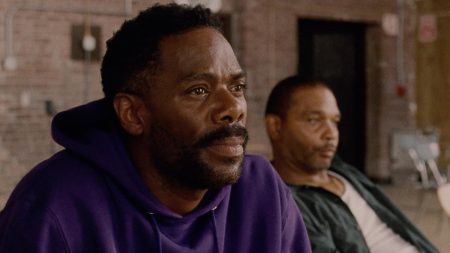The Passing of a Legend: Souleymane Cissé, a Pioneer of African Cinema
Malian filmmaker Souleymane Cissé, a towering figure in African cinema and a trailblazer whose work spanned over five decades, has tragically passed away at the age of 84. The news of his death was announced by Malian television on Wednesday, leaving the world of cinema and beyond in a state of profound mourning. Cissé, who had just held a press conference to present two trophies ahead of the 29th edition of Fespaco, the Pan-African Film and Television Festival of Ouagadougou, was a man whose life was deeply intertwined with the art of storytelling and the celebration of African culture. His sudden demise has sent shockwaves through the global film community, as fans, collaborators, and admirers reflect on the immense legacy he left behind.
A Groundbreaking Career and Trailblazing Achievements
Souleymane Cissé’s career was nothing short of extraordinary, marked by numerous firsts and achievements that cemented his status as one of the most influential voices in African cinema. As the first Black African filmmaker to win a feature film prize at the prestigious Cannes Film Festival in France, Cissé broke barriers and challenged stereotypes. His iconic 1987 film, Yeelen (or The Light), earned him the Jury Prize at Cannes, a historic moment that highlighted the power of African storytelling on the global stage. Decades later, in 2023, he was awarded the Carrosse d’or for his film Finye (or The Wind), further solidifying his reputation as a master of his craft.
His contributions to African cinema were not limited to international recognition. Cissé was a two-time winner of the Étalon d’or de Yennenga, the Grand Prize of the Ouagadougou Pan-African Film and Television Festival, a testament to his enduring impact on the continent’s film industry. Over the course of his career, he consistently used his platform to amplify African voices and explore themes of identity, culture, and social justice. Through his work, Cissé brought African stories to life in a way that resonated with audiences worldwide, earning him a reputation as both a visionary and a humanist.
Early Life and Education: The Making of a Filmmaker
Born in Bamako, Mali, Souleymane Cissé’s journey into the world of cinema was not a conventional one. From a young age, he was drawn to the power of storytelling, a passion that would eventually lead him to pursue a career in filmmaking. Cissé’s educational journey took him across continents, as he studied in Mali, Senegal, and later in Moscow, where he honed his craft at the Gerasimov Institute of Cinematography. This diverse exposure not only shaped his artistic vision but also equipped him with the technical skills needed to bring his stories to the screen.
Cissé’s education was not limited to formal training. He was also deeply influenced by the rich cultural heritage of Mali and the broader African continent, which would later become a central theme in his work. His films often explored the intersection of tradition and modernity, reflecting his deep respect for African history and his commitment to preserving its stories for future generations. This blend of personal experience, cultural pride, and artistic innovation would become the hallmark of his career.
A Commitment to African Storytelling and Legacy
Souleymane Cissé’s work was more than just entertainment; it was a movement. Through his films, he sought to challenge narratives that had long been dominated by Western perspectives, offering instead a uniquely African lens through which to view the world. His 1987 masterpiece, Yeelen, is often cited as one of the greatest African films of all time, a sweeping epic that delves into themes of power, identity, and destiny. The film’s success was not only a testament to Cissé’s artistry but also a awakening for global audiences, who were introduced to the richness and complexity of African storytelling.
Cissé’s later work, such as Finye, continued this tradition, exploring themes of love, rebellion, and social change. His films were often politically charged, reflecting his deep engagement with the issues of his time. Yet, they were also infused with a profound humanism, a quality that earned him the admiration of audiences and critics alike. Through his work, Cissé inspired a generation of filmmakers to take pride in their African heritage and to use their craft as a tool for social change.
Tributes and Reflections: A Life of Purpose and Passion
The news of Souleymane Cissé’s passing has sparked an outpouring of tributes from around the world, as friends, colleagues, and fans reflect on the impact he had on their lives and on the world of cinema. His daughter, Mariam Cissé, expressed the deep sense of loss felt by his family, stating, “Papa died today in Bamako. We are all in shock. He dedicated all his life to his country, to cinema, and to art.” Her words capture the essence of a man who lived with purpose, driven by a passion for storytelling and a commitment to his community.
Cissé’s influence extended beyond the screen. He was a leader and a mentor, serving as the President of the Union of Creators and Entrepreneurs of Cinema and Audiovisuals of West Africa. Through this role, he championed the development of African cinema and supported emerging talent, ensuring that the next generation of filmmakers had the opportunity to thrive. His legacy is not only in the films he made but also in the countless lives he touched and the doors he opened for others.
A Lasting Legacy: Souleymane Cissé’s Enduring Impact
As the world bids farewell to Souleymane Cissé, it is clear that his impact will be felt for generations to come. Through his groundbreaking films, his leadership, and his unwavering commitment to African storytelling, he left an indelible mark on the world of cinema. His work challenged stereotypes, celebrated African culture, and inspired audiences to see the world through a different lens.
Cissé’s legacy is not just about the awards he won or the films he made; it is about the doors he opened, the stories he told, and the voices he amplified. He was a true pioneer, a visionary who saw the power of cinema to transform lives and shape societies. As the world remembers Souleymane Cissé, it does so with gratitude for a life well-lived and a legacy that will continue to inspire and uplift for years to come.
In the words of those who knew him best, Souleymane Cissé was more than a filmmaker; he was a father, a mentor, and a hero. His passing leaves a void, but it also reminds us of the incredible body of work he left behind and the lessons he imparted to those who followed in his footsteps. As Fespaco prepares to honor his memory, one thing is certain: Souleymane Cissé’s light will continue to shine brightly, illuminating the path for future generations of African filmmakers and storytellers.
Rest in peace, Souleymane Cissé. Your legacy lives on.















